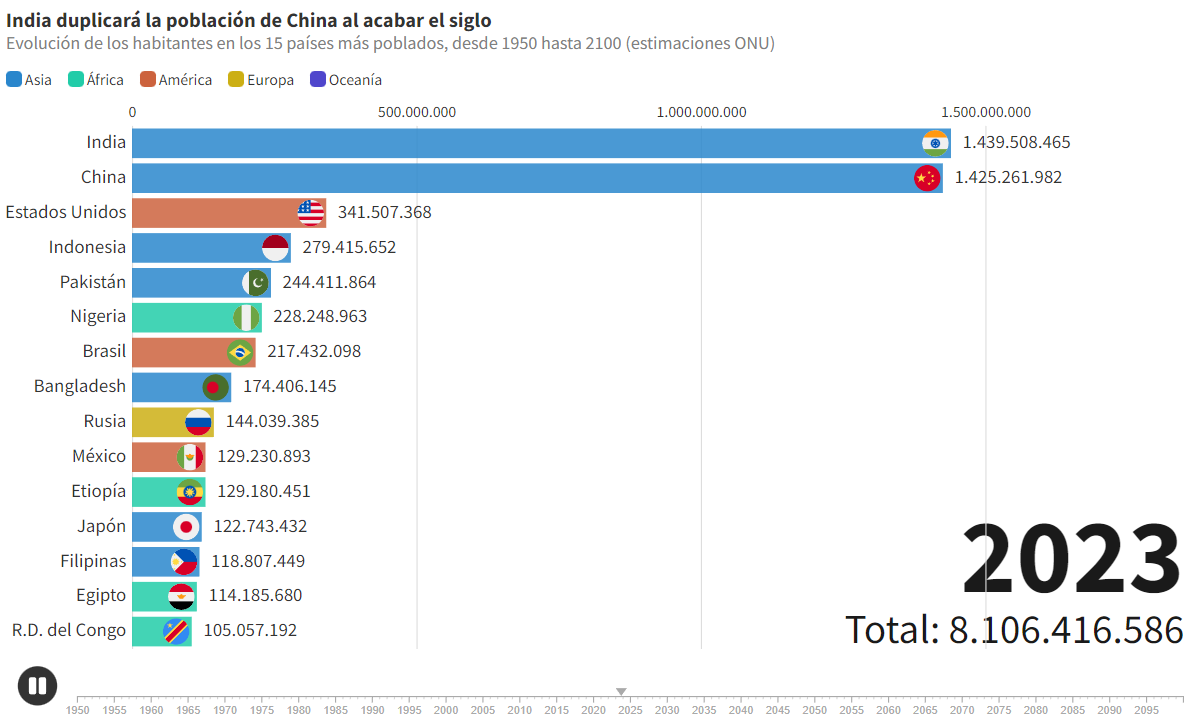On 15 November 2022 the world’s population reached 8 billion people.
According to the United Nations (UN), 80% of the population growth is taking place in developing countries, mainly because women often cannot decide whether or how many children they want to have. India will overtake China as the world’s most populous country by 2023.

Source: https://www.rtve.es/noticias/20221115/poblacion-mundial-ocho-mil-millones-personas/2408893.shtml
Experts warn that this will have an impact on food security and environmental crisis, as the basic needs of all people have to be met without harming the environment.
Michael Herrmann, an economics and demography adviser at the United Nations Population Fund (UNFPA), says: “Many people live in poverty, have no jobs and no food security, and more people are being born. This increases the challenge of meeting everyone’s basic needs. To do so, he adds, will require an increase in consumption, and therefore production.
As the population grows, so does consumption, so it is expected that production and, therefore, agriculture will increase, since according to data from the United Nations Food and Agriculture Agency (FAO), family farming produces 80% of the food consumed in the world.
Therefore, if this large percentage of the food consumed in the world comes from family farming, as the population grows, this should be increased with options that provide sustainable solutions in the agricultural sector.



